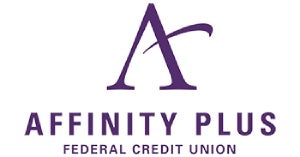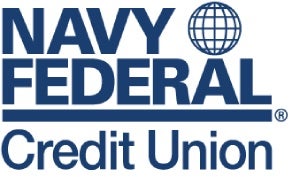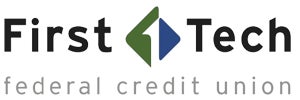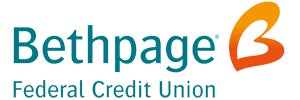If you’re a business owner exploring business banking options, credit unions can offer competitive products with lower fees and higher interest rates than traditional banks. However, membership requirements can be more restrictive, which is an important factor to consider when choosing the best credit unions for business accounts.
I review the six best credit unions and compare key features, fees, and pros and cons to help you find the best fit for your company’s needs.
- Best overall credit union for business accounts: Affinity Plus FCU
- Best for social entrepreneurs seeking flexible financing: Self-Help FCU
- Best for military-affiliated business owners: Navy Federal Credit Union
- Best for membership flexibility and scalable checking accounts: Credit Union 1
- Best for business insurance services: First Tech Federal Credit Union
- Best for interest-earning business accounts: Bethpage Federal Credit Union
Best credit union for business accounts comparison
Below, I summed up the top features I considered for the six credit unions for business accounts. Here is our list of the best credit union business accounts.

Affinity Plus FCU: best overall credit union for business accounts
My rating: 4.17 out of 5
Why I chose it
Affinity Plus is my overall best credit union for business accounts because of its comprehensive range of services, including competitive savings options and reward-earning debit cards. With access to a broad ATM network and cash and coin services, Affinity Plus is an excellent choice for businesses that value both digital and in-person banking (as long as a branch is located nearby).
Membership qualifications
Eligibility: To become a member, you must live, work, study, or worship in certain eligible regions or have a family or employer affiliation. You can also join by donating a one-time $25 to the Affinity Plus Foundation. See Affinity Plus FCU’s eligibility criteria.
Business Membership: For sole proprietors or LLCs, the business owner must open the membership. Review the business document checklist for your business type, submit the required documents, and send a membership interest form online.
Fees
-
- Monthly service fees: None
- Check clearing fees and monthly deposit fees: 20 cents per check after the 50 limit
-
- Monthly service fees: $15
- Check clearing fees and monthly deposit fees: 20 cents per check after the 250 limit
Features
- Over 60,000 ATMs nationwide via the MoneyPass, Co-op, and SUM networks
- High-yield money market accounts (MMAs) and certificates of deposit (CDs)
- No annual fee business credit card
- Business vehicle loans and equipment loans
- Business lines of credit and real estate loans
- Cash and coin services with reduced rates for business members
Pros and cons
| Pros | Cons |
|---|---|
|
|

Self-Help FCU: best for social entrepreneurs seeking flexible financing
My rating: 4.15 out of 5
Why I chose it
I consider Self-Help FCU one of the top credit unions for social entrepreneurs looking for flexible financing. I appreciate how it focuses on supporting underserved communities. With small business loans starting at $15,000 in Illinois and North Carolina, with the option to apply for lower loan amounts and waived collateral requirements, Self-Help FCU is a great provider for businesses that need a little extra flexibility.
Additionally, its business accounts have waivable monthly fees, which helps reduce business costs.
Membership qualifications
Eligibility: Membership is available to individuals living, working, studying, or worshipping in eligible communities in California, Illinois, and Wisconsin. You can also qualify by having a family or employer affiliation or paying a one-time $5 fee to support their community mission.
Business Membership: Available for businesses in these states and with the proper documentation. For more info, contact 877-369-2828. Complete the online membership application and submit it by mail or at your nearest branch.
Monthly Fees
- Business Checking: $15; waivable with a combined average daily balance (ADB) of $25,000 across your business accounts under a single member number.
Features
- 100 free monthly transactions
- Interest-earning checking account
- Savings, MMAs, and CDs
- Small Business Administration (SBA) loans, nonprofit business loans, and commercial loans
- Provides financial services to underserved communities
- Member of the national Co-op shared branching network
Pros and cons
| Pros | Cons |
|---|---|
|
|

Features
- Debit card with zero liability for unauthorized transactions
- Competitive APY for business checking and savings
- Business savings, MMAs, and CDs
- Merchant services, payroll processing, and business insurance
- Business credit cards
- Commercial real estate (CRE) loans, lines of credit, and term loans
Pros and cons
| Pros | Cons |
|---|---|
|
|

Credit Union 1: best for membership flexibility and scalable checking accounts
My rating: 3.80 out of 5
Why I chose it
I find Credit Union 1 to be an excellent option for small business owners. Its flexible membership and scalable business checking accounts can support growing businesses. What stands out to me is its comprehensive range of services, including cannabis banking, merchant solutions, tax payment processing, and ADP payroll integration. For businesses with changing financial needs, I believe Credit Union 1 offers the right mix of support and flexibility.
Membership qualifications
Eligibility: Open to individuals within its field of membership (determined by the system through online application). You can also speak with a Member Solution Specialist. See Credit Union 1’s online application. A one-time $5 membership fee will be collected.
Business Membership: Alternatively, a $5 donation to support the Educational Development Association (CU1EDA) allows you to become a member.
Monthly Fees
- Business Express Checking: $10; waived by maintaining an ADB of $1,500 or if Merchant Services are deposited into the account
- Business Performance Checking: $15; waived by maintaining an ADB of $5,000 or if Merchant Services are deposited into the account
- Business Elite Checking: $50; waived by maintaining an ADB of $25,000 or if Merchant Services are deposited into the account
Features
- Three business checking options plus a nonprofit account
- Free online bill pay and treasury management portal
- Sweep account (see how sweep accounts work)
- SBA lending, business credit cards, and CRE loans
- Cannabis banking services
- 90,000 Allpoint and Co-op network ATMs and 5,000 shared branch locations
Pros and cons
| Pros | Cons |
|---|---|
|
|

First Tech Federal Credit Union: best for business insurance services
My rating: 3.78 out of 5
Why I chose it
First Tech FCU is ideal for businesses seeking both banking and insurance services. Its comprehensive coverage includes business umbrella, commercial vehicle, crime, workers’ compensation, and liability insurance. Business insurance is crucial for protecting against financial loss, managing risk, and safeguarding employees. First Tech also offers the best credit union business accounts, with a business checking product featuring low or waivable fees and savings products with competitive yields.
Membership qualifications
- Eligibility: Membership is open to employees (and their families) of over 900 partner companies (See First Tech FCU’s partner page), those living or working in Lane County, Oregon, State of Oregon employees, and members of the Computer History Museum or Financial Fitness Association. Family or household members of existing First Tech members are also eligible.
- Business Membership: Available to businesses within the eligible employee groups, with specific documentation required.
If you cannot meet the above criteria, contact a First Tech representative to schedule a virtual or in-person appointment.
Monthly Fees
- Simple Business Checking: $6; waived if ADB is $1,000 or more
- Business Dividend Checking: $15; waived if ADB is $5,000 or more
Features
- Debit card with Mastercard ID theft protection
- Online and mobile banking
- Offers a variety of business insurance products for entrepreneurs
- CDs with competitive interest rates (up to 3.50%)
- CRE loans include multifamily, office and industrial, and retail and mixed-use buildings
- Free overdraft protection service
Pros and cons
| Pros | Cons |
|---|---|
|
|

Bethpage Federal Credit Union: best for interest-earning business accounts
My rating: 3.75 out of 5
Why I chose it
For businesses looking to grow their funds and earn yields, I think Bethpage is an ideal choice. Its business checking and savings accounts offer interest while keeping fees minimal. I especially like the fact that the Bethpage Business Checking account has no monthly service fees, minimum balance requirements, or transaction limits. Plus, you can access various business loans. If your business is based in New York or New Jersey, Bethpage is a solid option with branches in both states.
For more interest-earning options, read our guide to the best business savings accounts.
Membership qualifications
- Eligibility: Open to individuals by paying a one-time $5 in a savings account to establish membership and access all products and services.
- Business Membership: Open to businesses through a one-time $5 deposit.
Monthly fees
Features
- Free debit card.
- Business checking accounts with unlimited and fee-free transactions.
- Remote deposit capture.
- Lending products include business credit cards, lines of credit, auto, CRE, and term loans.
- Interest on lawyer accounts (IOLA) available.
- Retirement and succession planning.
Pros and cons
| Pros | Cons |
|---|---|
|
|
How to choose the best credit union for your business account
When selecting the best credit union for your business checking account needs, it’s important to consider a few key factors:
- Membership requirements: Credit unions often have stricter membership criteria, so verify your eligibility.
- Account features: Choose business accounts with fee-free transactions, interest earnings, and scalability.
- Fees: Watch for monthly maintenance fees, transaction fees, and other charges since some credit unions offer fee waivers based on account balance or transaction volume.
- Customer service and accessibility: Consider the credit union’s branch/ATM network and customer service. While service is often excellent, locations may be more limited than traditional banks.
Before opening a business account, check out our guide on how to open a business bank account.
Additional tips when selecting a credit union
I recommend closely reviewing potential fees that credit unions may charge, such as ATM fees for using non-network machines, overdraft fees, paper statement fees, inactive account fees, and loan application fees, which can add up over time.
If you have a nationwide business, you can take advantage of the shared branching and cooperative ATM networks that some credit unions offer. Shared branching networks allow businesses to access accounts and conduct transactions at partner locations nationwide. This is helpful for business owners who need to deposit cash or check balances while on the go.
When credit unions are part of cooperative ATM networks, businesses can access thousands of surcharge-free ATMs nationwide, helping to avoid fees. Among the credit unions that offer shared branching and participate in cooperative ATM networks include Affinity Plus FCU, Self-Help FCU, Credit Union 1, and First Tech Federal Credit Union.
Methodology
When I made the guide to the best credit unions for business accounts, I carefully reviewed each provider’s membership requirements, interest rate offers, monthly fees, initial deposit requirements, and transaction limits. I also paid close attention to minimum balance requirements, ATM access, and ATM fees, including the overall account features. Additionally, I considered other available business products and services, ensuring the credit unions offered valuable resources for small and growing businesses.
Credit unions vs traditional banks
When comparing credit unions to traditional banks, here are several key differences:
- Ownership
-
- Credit unions: Owned by members, so profits are returned to members through lower fees, better interest rates, and more personalized service
- Traditional banks: Owned by shareholders, and profits are primarily distributed to stockholders
- Fees
-
- Credit unions: Typically offer lower or no monthly fees, reduced ATM charges, and more competitive loan rates
- Traditional banks: May charge higher fees for account maintenance, overdrafts, and other services
- Interest rates
-
- Credit unions: Generally offer higher interest rates on savings and lower rates on loans
- Traditional banks: Can offer lower rates on savings accounts and higher rates on loans
- Customer service
-
- Credit unions: Often provide more personalized customer service since they are smaller, community-based providers
- Traditional banks: May have more impersonal customer service operations but often provide 24/7 support
- Accessibility
-
- Credit unions: Often have fewer branches and ATMs, which can be inconvenient for some users
- Traditional banks: Generally have a wider network of branches and ATMs, making them more accessible if you need nationwide access
- Membership
-
- Credit unions: Specific membership requirements, but some offer easy membership via a small donation
- Traditional banks: Open to everyone and will require meeting basic account qualifications to be an account holder
Ultimately, the choice depends on your business needs. If you value better rates and customer service, go with a credit union. For wider access and more convenience, a traditional bank is the better option.
Alternatives to the Best Credit Unions for Business Accounts
Aside from credit unions and traditional banks, you may consider opening a business account with a financial technology (fintech) company.
Here are three alternatives to consider:
U.S. Bank: The U.S. Silver Business Checking account offers a cash deposit allowance, 125 free monthly transactions, and no monthly fees, which is uncommon with large traditional banks. Check out our U.S. Bank business checking review to learn more about its pros, fees, and features.
Frequently asked questions
Is it a good idea to open a business account with a credit union?
Yes, opening a business account with a credit union can be a great idea. Credit unions typically offer lower fees, better interest rates, and more personalized service to their members. Additionally, they often provide more flexible loan terms with lower interest rates, which benefits small businesses.
What is the main downside to opening an account at a credit union?
The main downsides of credit unions are limited branch access and restrictive membership requirements at some institutions. However, credit unions like Affinity Plus FCU, Credit Union 1, and Bethpage Federal Credit Union allow membership through a one-time donation, reducing these barriers.
